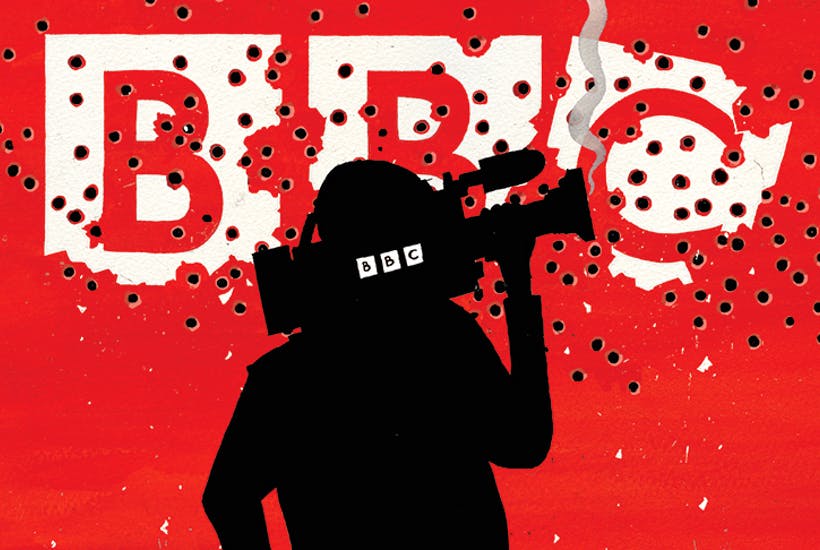NHK is Japan’s version of the BBC – it was actually modelled after the Beeb way back in the 1920s. It has four terrestrial, two satellite TV stations, and three radio stations. It is advert-free, and funded by a license fee. It could be seen as one of Auntie’s nephews perhaps, with many of the same family traits, but a few important differences that embattled BBC executives might do well to take notice of.
Unless you have a weird fondness for the noisy and inane (see the Takashi Fuji episode in ‘Lost in Translation’) NHK is probably the only ‘terebi’ you would want to watch in Japan. It is renowned for the superior production values and more grown up tone of its output, particularly news and weather, the latter especially important in a disaster-prone country with remote communities with high concentrations of elderly people.
A key distinction between NHK and the BBC is that the NHK license fee (around 95 pounds) is collected in what amounts to an honesty system. Despite occasional crackdowns on hotel chains and the most egregious offenders, for most individuals, if you are determined not to pay and can put up with the NHK representative tapping on your window, nothing serious will happen. It is highly unlikely you will end up in court, like Charles Moore, and 180,000 others in the UK each year.
Despite lazy stereotypes of the Japanese as faultlessly honest, the number of non-payers is high – an estimated 20 per cent of Japanese hide behind the sofa when the collection agent comes round, at least some of the time. Most pay up in the end though. And overall criticism of the corporation has been mild compared to the daily battering the BBC endures. This is partly due to the lower fee and less vindictive attitude to non-payment, but also to NHK’s political stance and conservative approach to programme making.
While the BBC was arguably set up as a counterweight to the right-wing press of Fleet Street and has been dogged by accusations of left-wing bias, NHK has always been seen as fundamentally on the side of Japan; not a mouthpiece of the government (which for almost 65 years has been in the hands of the conservative LDP), but not especially sympathetic to its opponents either.
As well as its supportive image, NHK has made a virtue of predictability and limited ambition. Rather than fighting on every media frontline, NHK focuses on a restricted number of areas and provides reliable, if unchallenging programming.
It is best known for safe mildly patriotic period dramas that offend absolutely no one – including the famous ‘taiga’ dramas that last a full year and have traditionally been among the most popular programmes on Japanese TV.
Then there are well-made documentaries, high-profile sport including live sumo – or if that’s too exciting – the board game shogi, along with live Kabuki, Noh, Bunraku and classical music in the evenings.
The highbrow content helps NHK justify the license fee on a public service argument and retain public support, even if viewing figures aren’t high. The situation recalls the words of Sir Humphrey Appleby on Radio 3 (of 30 years ago): ‘I never listen, but it’s good to know it’s there’.
NHK’s presentation is low key and modest. Unlike the BBC’s shouty, self-promotion with the endlessly repeated trailers that make you feel like you are being grabbed by the lapels and screamed at, NHK’s presenters are mild-mannered and respectful and not noticeably chosen for their youth or attractiveness. They appear rather humbled by the privilege of serving the public through the national broadcaster.
The concept of ‘wokeness’ and political correctness has made little impression on NHK too; its dramas would be striking to British viewers for their office settings featuring stern hard-drinking male bosses, female subordinates and mono racial domestic scenes of housewives…doing housework. Diversity, inclusivity and ‘female empowerment’ are not relentlessly forced at viewers. Amazingly, this has not led to howls of outrage. NHK’s content can seem old-fashioned, even dull at times, but it’s comfortable and people seem pretty happy with it.
Which is not to say that calls to scrap the license fee are never heard in Japan. The issue is occasionally raised and there is even a fringe political party dedicated to the cause. ‘The party to protect the people from NHK’, originally seen as a collection of fruitcakes and loons, nonetheless scored a sensational triumph last year when they fluked one seat in the Upper House elections (which use proportional representation) despite a tiny vote share. But commentators have dismissed the anti-NHK party as a manifestation of voter disillusionment with politicians in general rather than a serious comment on the national broadcaster – the party is generally considered a joke.
Besides the license fee question, NHK has many of the same problems as the BBC, most worryingly the haemorrhaging of young viewers. But, on balance, by holding on to its core, albeit ageing audience, doing a small number of simple things well, and charging a reasonable fee, it has generally retained the support of the Japanese people.
In its long history, NHK has always looked to its progenitor the BBC for inspiration and guidance. Perhaps it’s time for that relationship to be reversed.







Comments